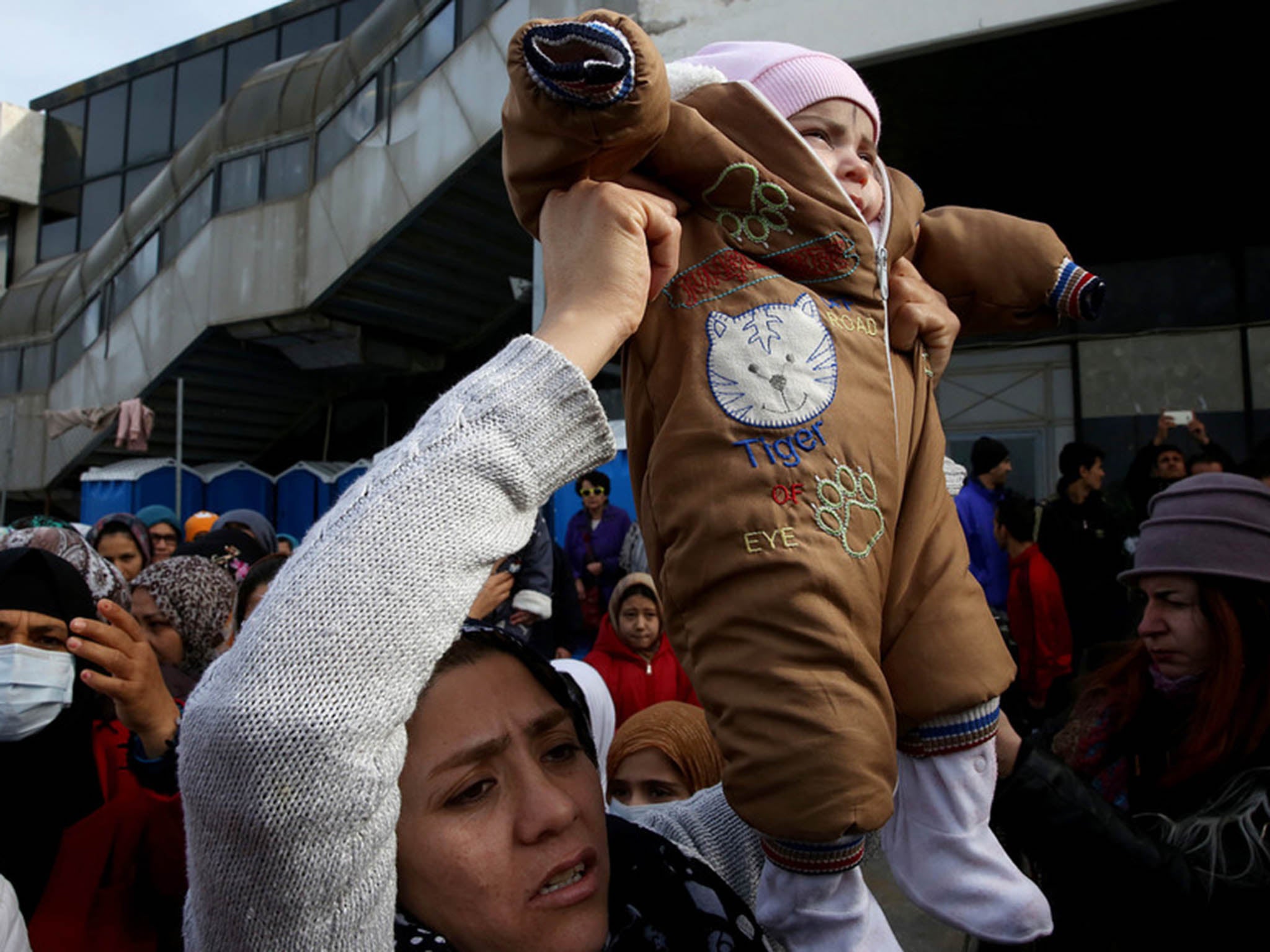Afghan police start beating asylum seekers in front of Danish officers on deportation flight
Abuse comes amid concern for hundreds of Afghans being returned to 'safe' Kabul

Rejected asylum seekers have been beaten by Afghan police in front of Danish officers on a deportation flight following repeated warnings over the risk of torture for migrants sent back to Afghanistan.
Denmark is among European countries, including the UK, that have re-started deportations to the war-torn country, despite concerns over ill-treatment in custody and the ongoing war being waged by Taliban militants and Isis.
A confidential report detailing the deportation of 16 rejected Afghan asylum seekers from Denmark has now detailed brazen abuse by the country’s authorities.
An official account seen by Politiken newspaper said Danish police officers were on board the flight to Kabul when two men refused to disembark after landing on 1 March.
A Danish officer sat immediately behind the men testified that an Afghan officer dealt “four to six powerful blows to the head” and several to the torso of one man – who was then dragged out of his seat by the hair - while the second man was punched several times in the face.
“In this context, he [the Afghan police officer] used force that would not have been deemed justifiable had Danish police acted similarly in the course of their duties in Denmark,” said the report.
The deportation had been followed closely by Danish media amid protests by human rights organisations and activists.
It was unclear whether Danish police intervened, but two officers helped their Afghan counterparts by restraining one of the men’s hands with plastic ties.
Analysts said the incident constituted a clear breach of European Convention on Human Rights (ECHR) provisions on torture and degrading treatment, with Danish authorities sharing jurisdiction on board the Demark-chartered plane.
“There is no professional justification for police to use that kind of force,” said Peter Vedel Kessing of the Danish Institute for Human Rights, according to a translation by The Local.
A lawyer representing the two deported Afghan men has contacted the government ombudsman with an official complaint over the case.
A UN report released last month warned that people detained in Afghanistan’s ongoing war face torture and ill-treatment in custody, despite pledges from the country’s government to eliminate abuse.
It found 45 per cent of interviewed prisoners “gave credible accounts” of being subjected to torture or ill-treatment by the Afghan National Police force and another 26 per cent by the National Directorate of Security.
The majority of those detained in relation to the ongoing conflict said they had been tortured to force them to confess, the report said, adding: “Many of those interviewed stated that they did not understand or could not read what was written on the ‘confession’ which they signed or thumb-printed.”
Afghanistan’s National Plan on the Elimination of Torture was drawn up in February 2015 but has not yet been implemented, promising recognition for the UN Committee against Torture and increased accountability and prevention work.
More than 15 years after the US-led invasion of Afghanistan, the Taliban continues to control swathes of territory as part of a bloody campaign to establish an Islamic emirate in the country.
Battles between the group and government forces led thousands dead last year, amid increasing terror attacks by the Taliban and rival groups affiliated with Isis, which has gained a foothold in the country.
At least four people were killed in fresh Taliban rocket attacks in eastern Afghanistan on Tuesday, while government forces pushed militants back in northern Kunduz province and a dozen Isis fighters in Nangarhar handed over their weapons in a peace agreement.
The Afghan government has expanded its use of militias accused of civilian killings and assaults, while national security forces have also been responsible for indiscriminate attacks and using civilian infrastructure for military purposes.
War artists in Afghanistan
Show all 6Hundreds of thousands of Afghans have been internally displaced by fighting, while more than 2.7 million have become refugees worldwide and at least 62,000 have reached Europe, constituting one of the largest groups crossing the Mediterranean.
Those reaching overcrowded refugee camps in Greece and Italy have long complained of being discriminated against and shunted to the back of the queue behind Syrians and Iraqis, despite long-standing European involvement in the war at home.
Among them are countless interpreters who were promised protection in exchange for risking their lives working with Nato forces but found themselves stranded in the crosshairs of Islamist insurgents hunting “collaborators” down.
Donald Trump is considering sending more American troops to the country, while Theresa May has agreed to a Nato request for 100 British soldiers – despite fighting a legal battle as Home Secretary to re-start deportations to supposedly “safe” provinces.
The Court of Appeal controversially ruled that returns could resume in March 2016, overturning a blanket ban imposed amid increased fighting and terror attacks.
Similar cases have been heard across Europe, with Germany, Austria, Sweden and Finland among the countries deporting Afghans on charter flights to Kabul, which has been designated a safe area despite a series of deadly bombings and shootings.
At least 248 people were deported from the EU to Afghanistan in the first quarter of this year, according to the country’s ministry of refugees, while thousands more returned voluntarily.
Subscribe to Independent Premium to bookmark this article
Want to bookmark your favourite articles and stories to read or reference later? Start your Independent Premium subscription today.

Join our commenting forum
Join thought-provoking conversations, follow other Independent readers and see their replies